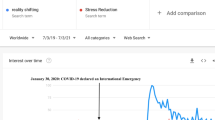Abstract
As treatments for malignancies have improved incrementally over the preceding decades, patients with cancer have been encouraged to reject an attitude of hopelessness and to choose instead the role of fighters. The recasting of the cancer patient as warrior and winner, upheld through the Livestrong movement, reaches its monstrous apotheosis in the form of Walter White, the central figure in the AMC television series “Breaking Bad.” The story begins with Walt as the protagonist, but the arc of this conversion narrative transforms him into the antagonist, exploring the darkest potential of his post-diagnosis empowerment. His awareness of his own mortality enables him to take risks that his more rational, pre-cancer self would have avoided. Rather than being rendered impotent by fear of an impending death, he finds himself emboldened, liberated from behavioral norms, capable of heretofore-unthinkable violence and even murder. As Walt moves from victim to victor, the viewer realizes the perils of a survive-at-all-costs mentality and is forced to question their own, initially sympathetic perception of Walt. The series subverts the notion of the cancer patient made noble through struggle by portraying a man betrayed by his own body who then becomes willing to betray everything else in the amoral service of his pride.
Similar content being viewed by others
References
Bell, K. 2010 Cancer Survivorship, Mor(t)ality and Lifestyle Discourses on Cancer Prevention. Sociology of Health & Illness 32:349–64.
Bell, K. 2012 Remaking the Self: Trauma, Teachable Moments, and the Biopolitics of Cancer Survivorship. Culture, Medicine and Psychiatry 36:584–600.
Bell, K., and S. Ristovski-Slijepcevic 2013 Cancer Survivorship: Why Labels Matter. Journal of Clinical Oncology: Official Journal of the American Society of Clinical Oncology 31:409–411.
Cantor, D. 2009 Choosing to Live: Cancer Education, Movies, and the Conversion Narrative in America, 1921–1960. Literature and Medicine 28:278–332.
Clow, B. 2001 Who’s Afraid of Susan Sontag? Or, The Myths and Metaphors of Cancer Reconsidered. Social history of Medicine: The Journal of the Society for the Social History of Medicine 14:293–312.
Fuks, A. 2010 The Military Metaphors of Modern Medicine. In The Meaning of Management Challenge. Z. Li, and T.L. Long, eds., pp. 57–68. Oxford: Inter-Disciplinary Press.
Golant, M., and K. Thiboldeaux 2010 The Wellness Community’s Integrative Model of Evidence-Based Psychosocial Programs, Services, and Interventions. In Psycho-Oncology. 2nd Edition. J.C. Holland, W.S. Breitbart, P.B. Jacobsen, M.S. Lederberg, M.J. Loscalzo, and R.S. McCorkle, eds., pp. 473–482. New York: Oxford University Press.
Hall, M. 2013 The Man Who Fell To Earth. Texas Monthly March 2013.
Kushner, R. 1984 Is Aggressive Adjuvant Chemotherapy the Halsted Radical of the ‘80s? CA: A Cancer Journal for Clinicians 34:345–51.
Little, M., K. Paul, C.F. Jordens, and E.J. Sayers 2002 Survivorship and Discourses of Identity. Psycho-Oncology 11:170–178.
Little, M., and E.J. Sayers 2004 While There’s Life… Hope and the Experience of Cancer. Social Science & Medicine 59:1329–1337.
Livestrong 2012 Livestrong Manifesto. Electronic document, http://www.livestrong.org/who-we-are/our-strength/livestrong-manifesto, accessed November 17, 2012.
Mukherjee, S. 2010 The Emperor of All Maladies: A Biography of Cancer. Large print Edition. Waterville: Thorndike Press.
Slobod, D. and A. Fuks 2012 Military Metaphors and Friendly Fire. CMAJ: Canadian Medical Association Journal [Journal de l’Association Medicale Canadienne] 184:144.
Sontag, S. 1979 Illness as Metaphor. 1st Vintage Books Edition. New York: Vintage Books.
Swarner, S. 2007 Keep Climbing. 1st Atria Books Hardcover Edition. New York: Atria.
USA Today/Kaiser Family Foundation/Harvard School of Public Health National Survey of Households Affected by Cancer 2006 Electronic document, http://kff.org/health-costs/poll-finding/usa-todaykaiser-family-foundationharvard-school-of-public-2/, accessed November 16, 2006.
Author information
Authors and Affiliations
Corresponding author
Rights and permissions
About this article
Cite this article
Lewis, M.A. From Victim to Victor: “Breaking Bad” and the Dark Potential of the Terminally Empowered. Cult Med Psychiatry 37, 656–669 (2013). https://doi.org/10.1007/s11013-013-9341-z
Published:
Issue Date:
DOI: https://doi.org/10.1007/s11013-013-9341-z



